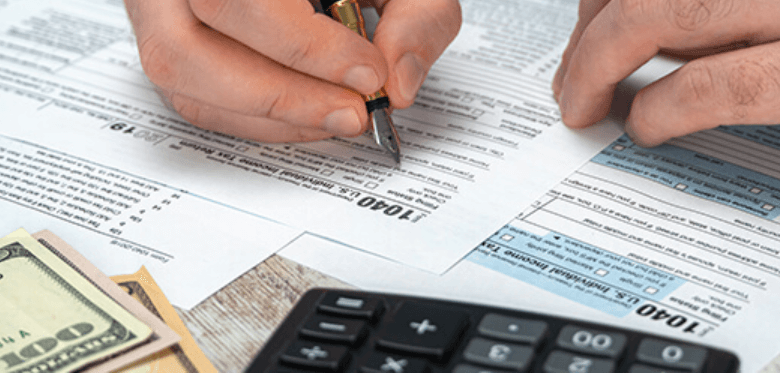
In today’s fast-paced world, managing finances paying taxes. Every year, millions of individuals and businesses face unexpected tax bills, leading to financial stress and uncertainty. In such situations, a personal loan to pay taxes can be a valuable lifeline. This article explores using personal loans to cover tax obligations, shedding light on the benefits, considerations, and frequently asked questions surrounding this financial strategy.
Understanding Tax Obligations
Taxes are an integral part of our lives and fund essential public services. However, meeting tax obligations can sometimes be challenging, especially when unexpected bills arise. It’s crucial to understand your tax responsibilities and plan for them effectively.
The Need for Financial Solutions
Life is full of surprises, and you may find yourself facing substantial tax bill investments or tax code revisions. In such situations, finding a suitable financial solution becomes paramount.
What Is a Personal Loan?
Explaining Personal Loans
A personal loan is a type of unsecured loan that individuals can borrow from banks, credit unions, or online lenders. They offer a fixed amount of money repaid over a specified period with interest.
Types of Personal Loans
Personal loans come in various forms, including installment loans and lines of credit. Installment loans are the most common where until the debt is fully repaid. Lines of credit, on the other hand.
Using Personal Loans for Tax Payments
Why Opt for a Personal Loan?
It offers a way to settle your tax debt promptly, avoiding penalties and interest charges that accrue over time. Compared to credit cards or IRS installment plans.
Tax Payment Scenarios
Personal loans can be used for various tax obligations, including income tax, property tax, and self-employment tax whether you’re an individual or a business owner, tax bills and maintain your financial stability.
Benefits of Using Personal Loans
Flexibility in Repayment
Personal loans offer flexibility in terms of repayment. Situation, whether it’s a short-term loan for immediate tax payment or a longer-term option for more extended financial planning.
Avoiding Penalties and Interest
One of the primary benefits of using a personal loan for tax payments is the ability to settle your tax debt promptly. High interest charges that the IRS imposes on unpaid taxes.
Maintaining Good Credit
Using a personal loan responsibly can positively impact your credit score. Timely payments demonstrate your financial responsibility, which can improve your creditworthiness over time.
Considerations Before Taking a Personal Loan
Interest Rates and Terms
Before applying for a personal loan, it’s essential for different lenders. Ensure that the loan aligns with your financial goals.
Impact on Credit Score
While personal loans can improve your credit score when managed correctly, but they can also negatively impact if you miss payments or default on the loan.
Alternative Solutions
Personal loans are not the only option for covering tax bills. Exploring alternative solutions, such as negotiating with the IRS for an installment plan or tapping into based on your unique financial situation.
How to Apply for a Personal Loan
Gathering Financial Documents
When applying for a personal loan, you’ll need to provide financial documents such as proof of income, credit history, and personal identification. Being prepared with these documents can expedite the application process.
Choosing a Lender
Selecting the right lender is a critical step in securing a personal loan. Research and compare lenders.
The Application Process
In-person application, providing the required documents, and waiting for approval. Some lenders offer quick approvals, making it possible to access funds promptly.
Managing Personal Loan Payments
Creating a Repayment Plan
Once you’ve obtained a personal loan, creating a repayment plan that fits your budget is essential. Consider your monthly income, expenses, and other financial obligations to ensure timely loan payments.
Budgeting for Loan Payments
Incorporating loan payments into your budget is crucial for successful financial management. Allocate funds specifically for loan repayment to prevent any financial strain.
Common Myths About Personal Loans for Taxes
Dispelling Misconceptions
There are several myths and misconceptions surrounding personal loans for tax payments. Read more…
Conclusion
In summary, a personal loan to pay taxes tax obligations. By understanding the benefits, considerations, and application process, that lead to greater financial stability.
FAQs
- What is the minimum credit score required for a personal loan?
- The minimum credit score required for a personal loan varies by lender but is typically 600 to 700. However, a higher credit score can help you secure better loan terms.
- Can I use a personal loan for any type of tax, including income and property taxes?
- Yes, personal loans can cover various tax obligations, including income tax, property tax, and self-employment tax.
- How quickly can I get approved for a personal loan to pay taxes?
- The approval process for a personal loan can vary depending on the lender. Some lenders offer quick approvals, often within a day or two, while others may take longer.
- Are there tax benefits associated with using a personal loan?
- No specific tax benefits are associated with using a personal loan to pay taxes. However, by avoiding IRS penalties and interest, you can potentially save money in the long run.
- What should I do if I can’t repay my loan on time?
- If you’re facing difficulty repaying your loan on time, contacting your lender immediately is essential. They may be able to work with you to find a solution, such as restructuring your loan or extending the repayment period.
In conclusion, a personal loan can provide the financial relief needed to maintain your fiscal health when facing unexpected tax bills. However, it’s crucial to approach this option with careful consideration, comparing lenders, understanding the terms, and planning for responsible repayment.




